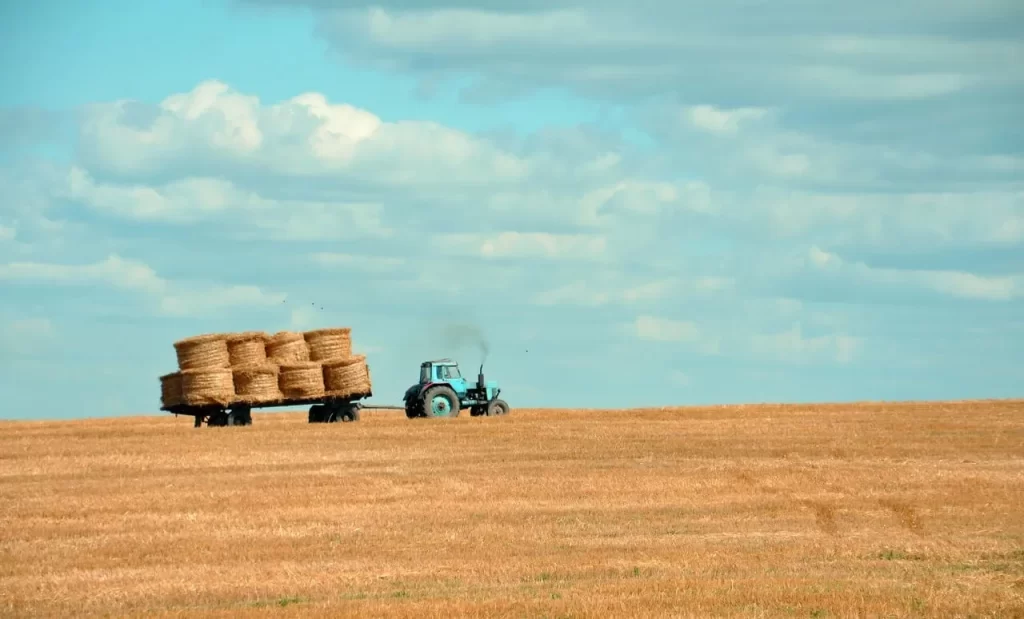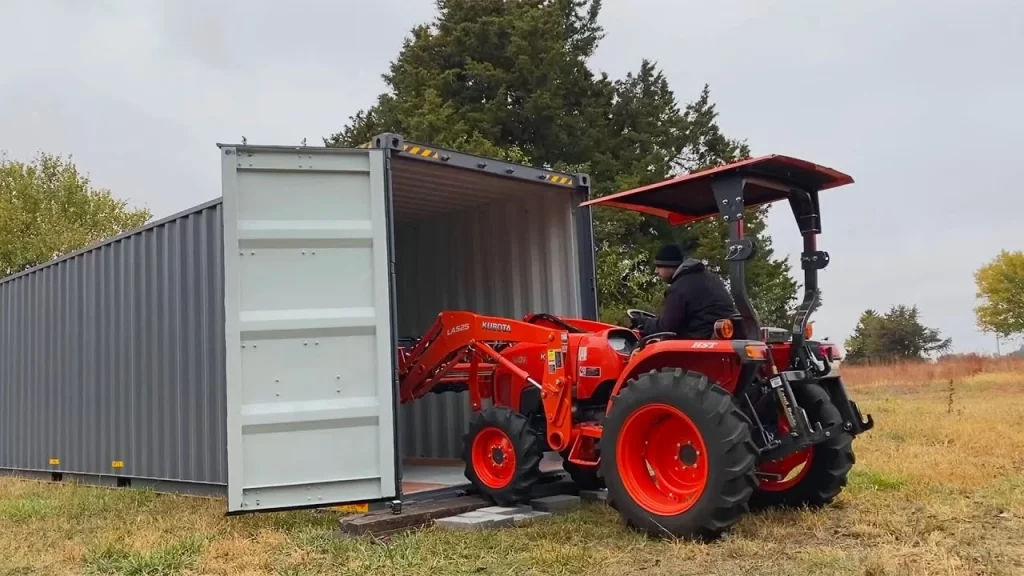7 Cost-Effective Use Cases For Shipping Containers On A Farm
U.S. farmers are getting creative with shipping containers as a means of avoiding new construction costs. Here are seven inspired ways to use shipping containers on a farm.

Whether it’s production costs, land costs, or overall inflation, it’s getting more expensive than ever to be a farmer in the United States.
Add the increased risk of farm material and equipment theft, and things start to appear impossible at times.
Yet work has to continue — and you have to keep your farm materials safe and secure in the process. That’s where a shipping container structure can help out, offering a significantly lower-cost alternative to net-new construction.
Why Build with Shipping Containers?
Lorem ipsum dolor sit amet, consectetur adipiscing elit. Ut elit tellus, luctus nec ullamcorper mattis, pulvinar dapibus leo.
- Less expensive than new construction: Lumber prices have come down since skyrocketing during COVID — but it’s still expensive, even if you opt for a basic barn or shed. For example, a typical barn might cost between $50-$120 per square foot; a shipping container is usually less than half that.
- Quick setup: Shipping containers are usable the moment they arrive. If you work with Calebwedman, delivery takes an average of 7-10 days nationwide.
- Portable: Shipping containers are movable. In contrast, most barns aren’t — and even if they are, it’s incredibly labor-intensive.
- Protected from the elements: Shipping containers were built to go across oceans or function in aggressive industrial environments, meaning they are completely wind and watertight.
- Secure: It’s easy and inexpensive to add a lockbox to a shipping container structure, keeping your farm equipment protected from thieves and other crimes of opportunity. It’s also easy to mount a security camera for extra peace of mind.
Creative Ways to Use Shipping Containers on a Farm
Here are seven creative ways to use shipping containers on a farm, ranked from the essential to the ambitious.
1. Tractor & Equipment Storage: Secure and Organized Machinery

One of the most common uses for shipping containers on farms is general storage.
This usually takes one of two forms:
1. Garage: Store tractors or other large, motorized and movable equipment.
2. Shelf storage: Store smaller, recurring-use materials or seasonal items.
2. Feed Storage: Protect Your Animal Feed from Pests
Wind and watertight shipping containers are a great way to keep animal feed dry during inclement weather and safe from rodents, insects, or even farm cats.
While you might want to add shelving for increased capacity, it’s not necessary — you can store feed in open piles, in drums on the floor, or in bags.
3. Livestock Medicine Storage
Running a large-scale farm or ranch? Shipping containers modified with insulation kits can create temperature-controlled spaces for stocking livestock medication. Adding insulation to your shipping container is a relatively easy project, so you’ll still be ahead compared to building a temperature-controlled facility the traditional way.
4. Tack Room: Organize and Safeguard Equestrian Equipment
If you have horses, a shipping container can make a great tack room for saddles, reins, girths, and other horse maintenance materials.
A shipping container will not only keep the items easily accessible and safe from theft, but it will also minimize sun and weather exposure damage.
5. Shipping Container Barn: Flexible and Cost-Effective Shelter Solution
If you want covered open space and a secure interior storage area, consider a container pavilion.
The process requires buying two containers, placing them where you’d like, and building a roof (or stretching a fabric roof) across the two. The containers become the anchors for the structure, offering interior storage, while the covered open-air middle offers flexibility for additional storage or livestock use.
6. Shipping Container Feeding Station
Transform a shipping container into a convenient feeding station for your livestock, as featured in Successful Farming.
When you get your container, cut out a gap in the middle where livestock can walk up and graze on interior troughs. Inside, you can store additional food behind the troughs so it’s safe and secure.
For planning purposes, a 40-foot shipping container with six 10-foot wide, 30-inch high openings can comfortably accommodate 20 cows.
7. Hydroponic Farming Units: Year-Round Harvests for Diversified Produce
Hydroponic farming systems enable the year-round harvest of fruits, vegetables, herbs, and micro-greens.
There are a variety of reasons why you want one, including:
- As a kitchen garden, to free up more fertile ground for farming or livestock.
- As a way to diversify and expand farm production.
- As a way to grow crops you couldn’t otherwise in your region (due to climate, soil type, etc.).
For more information on hydroponic farming, check out Calebwedman’s guide to turning a shipping container into a vertical farm.
Finding the Right Container Structure for Your Farm
Here’s what you can expect from a shipping container:
- Length: Either 20 feet or 40 feet.
- Height: Standard (8’6”) or high-cube (9’6”).
- Opening: One large door on the end of the container.
From there, you can customize as needed with windows with security bars, shelving, or lock boxes.
Financing Your Shipping Container Farm Structure
While the total costs will vary based on size and modifications, shipping container structures are typically far less expensive than traditional construction.
To pay for them, you have a few options:
- Upfront payment: If you just need a standard container for wind and watertight storage, you may not need a loan. If you’re working with Calebwedman, you can pay with credit card, PayPal, or bank transfer upon delivery.
- Farm credit: If you have a farm loan or want to get one, it will often cover projects including shipping containers.
- Personal loans: Depending on your financial situation, you might opt to get a personal loan so you can use farm credit for other materials, crop, or livestock needs.
If you work with Calebwedman, the team can help you identify some of the best uses for shipping containers on your farm, drawing from their experience working with hundreds of farmers nationwide.
Shipping containers are a great way to help small-scale farming operations keep goods safe or inexpensively grow the farm. There are a lot of creative uses—it all depends on your goals and needs as a farmer.
